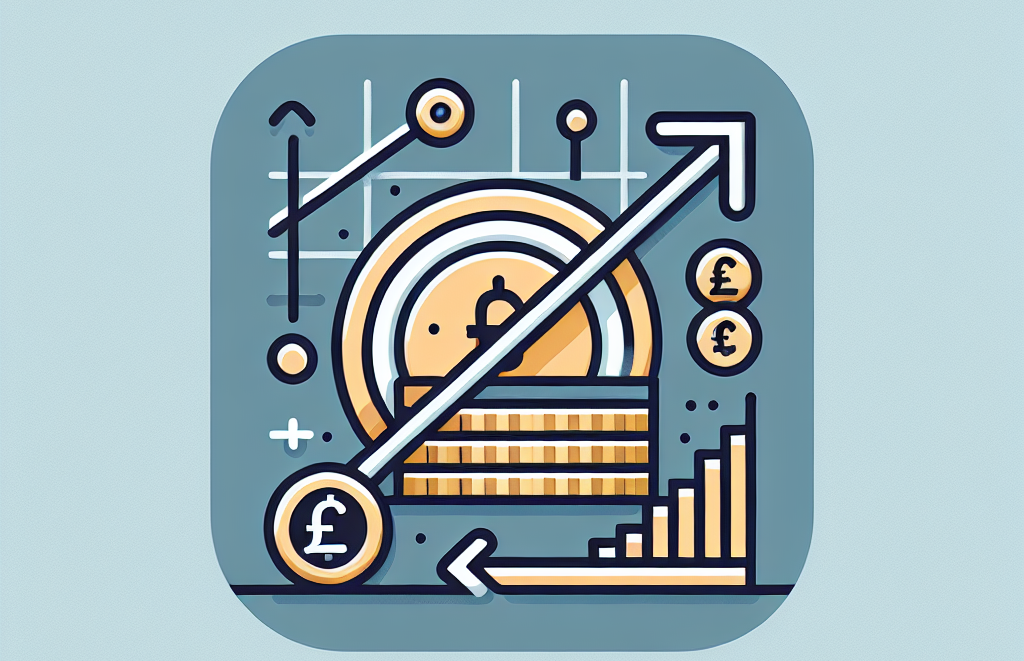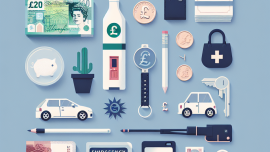
Intro to Investing: What I Did with My First £50 on Trading212
Understanding Budgeting: The Beginner’s Guide to Taking Control of Your Money
Hey there! I’m Tom Bradley — proud penny-pincher, spreadsheet enthusiast, and your friendly neighborhood finance guy here at Financeone. If you’re just starting your financial journey, welcome! Trust me, learning how to budget might sound as thrilling as watching paint dry (on a humid day), but it’s one of the most powerful tools to control your money — and your stress.
Whether you’ve just started adulting or are finally tired of wondering where your paycheck magically disappears by the 15th of the month, you’re in the right place. Buckle up, beginner — we’re about to pull the curtains back on the world of budgeting, with zero jargon and a little dry humor (because, well, that’s kind of my thing).
What is a Budget, and Why Should You Care?
At its core, a budget is a plan for your money. That’s it. No complicated formulas, no advanced economics degree. Just a tool that helps you tell your dollars where to go — instead of wondering where they went.
Think of budgeting like GPS for your finances. Without a destination (your financial goals) and directions (your budget), you’ll get lost. Fast.
Here’s Why You Need a Budget:
- You gain control over your finances instead of letting them control you.
- You reduce stress by anticipating and planning for regular expenses.
- You stop living paycheck-to-paycheck — no more “five days left but only $13 in the account” vibes.
- You can save for the future, whether it’s a rainy day, a new car, or that island retirement dream (same, honestly).
Step-by-Step: How to Create Your First Budget
OK, rookie, now the rubber meets the road. Here’s a no-nonsense process to build your first budget from scratch — even if you’ve never opened a spreadsheet or balanced a checkbook (do people still do that?)
1. Figure Out Your Monthly Income
This is everything that comes in each month — your salary, side gigs, freelance gigs, and even that birthday money from Grandma (if you’re lucky). Use your net income, not gross — that means after taxes are taken out. We want to work with what you can actually spend, not what your boss claims you make.
2. Track Your Expenses
Before you can create a solid budget, you need to know where your money is currently going. Grab your bank and credit card statements from the last 1-2 months. Categorize every expense like a digital detective chasing down clue after clue. Here’s a starter list:
- Rent or Mortgage
- Utilities & Bills
- Groceries
- Transportation (gas, insurance, public transport)
- Subscriptions (Netflix, Spotify, that random meditation app you’ve forgotten)
- Dining Out
- Shopping
- Debt Payments
3. Set Your Budget Categories
Now break your monthly expenses into categories. Start with essentials, then distribute funds to non-essentials. A simple way to begin is the 50/30/20 Rule:
- 50% for Needs (housing, bills, groceries, transportation, insurance)
- 30% for Wants (eating out, hobbies, streaming, that fancy avocado pillow)
- 20% for Savings and Debt Repayment
This rule is not law — it’s training wheels. Adjust as needed, especially if your rent eats up more than 50% (hello, big cities).
4. Choose Your Budgeting Tool
Choose what works for your personality. Me? I love a good spreadsheet, but some folks prefer apps or the tactile joy of pen and paper. Here are your options:
- Spreadsheets (Excel or Google Sheets): Perfect for total control and customization.
- Budgeting Apps: Like YNAB (You Need a Budget), Mint, or EveryDollar.
- Pencil & Notebook: Old school? Sure. Still effective? Absolutely.
No matter your tool of choice, consistency is key. Don’t budget just once a month. You wouldn’t water a plant once a month and expect it to thrive, right?
5. Adjust and Review Weekly
This isn’t “set it and forget it.” Budgets are living, breathing things (well, kind of). Life throws curveballs, and your budget should bend without breaking. Check in weekly to track actual expenses vs. your plan. Did you overspend on coffee again? That’s OK — awareness is progress.
Beginner Budget Mistakes to Avoid
I’ve been there. We all start somewhere, and mistakes are part of the journey. But if I can help you sidestep a few banana peels, here’s what to look out for:
- Being too strict: Don’t budget zero dollars for fun. You’re human, not a robot.
- Forgetting irregular expenses: Gifts, car maintenance, and those once-a-year things sneak up fast.
- Using credit cards as a backup: That’s how you dig holes, not build bridges.
- Not reviewing regularly: A dusty budget is a busted budget.
Tips to Stick to Your Budget (Even When It Sucks)
Let’s be real — budgeting isn’t always fun. Some months are tougher than others. Here’s how to stay the course:
- Automate savings: Treat it like a bill and set it to auto-debit each month.
- Use cash for tricky categories: Groceries. Dining out. Shopping. You might think twice when handing over real bills.
- Reward yourself when you stay on track: Within reason, of course — don’t celebrate saving $100 by spending $300.
- Have an accountability partner: Share your goals with someone. Even a pet counts (as long as they don’t bark over your budget meeting).
You’re Now Officially Budget-Conscious (Congrats!)
If you’ve made it this far, take a deep breath and know this — you’re winning. Most people never take the time to really understand where their money goes. You did. That makes you officially budget-conscious, and maybe even borderline financially savvy. Go ahead, brag a little.
Budgeting isn’t about depriving yourself — it’s about creating financial freedom. The goal isn’t to save every dollar, but to spend intentionally and confidently.
And remember: Your budget isn’t written in stone. Update it. Improve it. Even mess it up once in a while. Just don’t give up — your future self will thank you (preferably from a beach, sipping something with an umbrella in it).
Want More Finance Tips or Got Questions?
Check out our About Us page to learn why Financeone exists, or feel free to reach out here. I’d love to hear how your first budget turned out — even if it’s a glorious mess. We all start somewhere.
Stay smart, stay consistent, and — most importantly — stay caffeinated.
— Tom Bradley








Leave a Reply